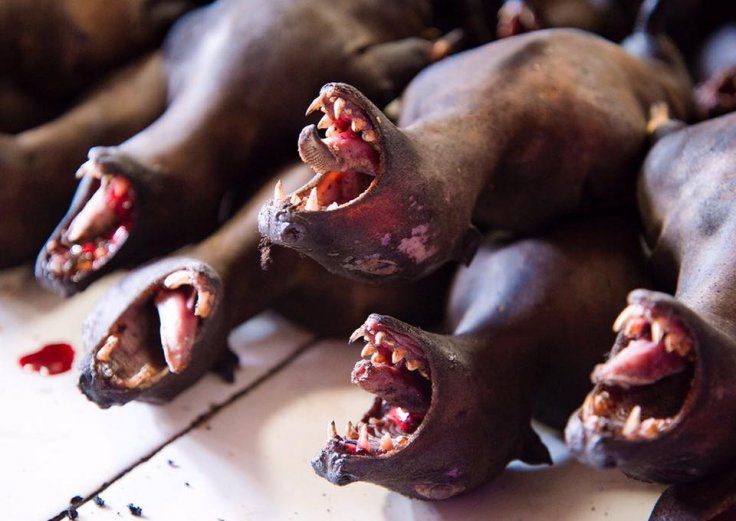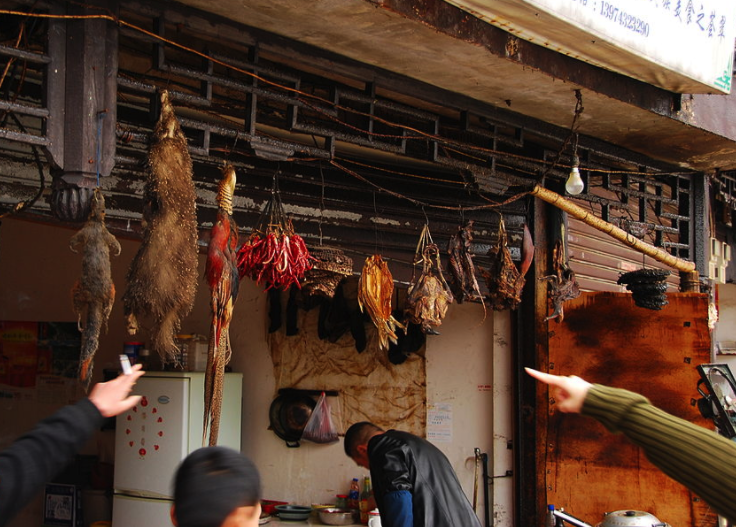While China acknowledged the fact that it needs to bring the lucrative wildlife meat industry under control, in Indonesia bats are still on the menu and being sold on wet markets.
In the North Sulawesi province of Indonesia, the wildlife market is still selling bats, many of which are caught in the forests using nets and hooks. After bringing these wild animals to the market their wings are removed and the fur scorched off using a blow torch to make them ready for cooking.
It is believed that in a Wuhan wildlife market the COVID-19 first made the jump from animal to humans. After the possible connection between bats and SARS-CoV-2 was pointed out by scientists, in many places where the bats are a delicacy, they were chucked out of the menu due to fear. But in Indonesia's Langowan, like other exotic meats such as snakes, rats, lizards, and wild boars, the bats are still pretty famous.

People Are Not Afraid
After the deadly Coronavirus pandemic hit the world, people started to blame the eating habit of China, where bats are a common delicacy and easily available in wet markets. But in February, Chinese authorities announced a temporary ban on all farming and consumption of "terrestrial wildlife of important ecological, scientific and social value".
The possible link between the animal and the SARS-CoV-2 terrified people all around the world. But when it comes to Indonesia, the story is a little bit different. Langowan market manager Yani Tulangow said that buyers were afraid to eat the bats earlier this year, but gradually, "because they think that we have a different way of cooking, they are not afraid of it anymore". According to him, the trade is now "back to normal".
There is no control over the bat meat business at the market, said Yani and he has no plans to stop any of the wild animal trade. But as per experts, markets like these where many wild animals are brought together and butchered are neither hygienic nor safe as a spillover event can take place very easily.

Wildlife Market and Disease
Raden Wasito, professor of veterinary medicine at Gadjah Mada University, said that it is like "what is going on in Wuhan will be occurring in Indonesia" which has many wildlife markets, and "all of those things can create a reservoir for many kinds of diseases".
According to another expert, Dave Redding, who is a senior researcher at the Centre for Biodiversity and Environment Research at University College London, the spillovers happen when a reservoir population with a high pathogen prevalence comes in contact with a novel host population. Not only in China, but there are also people who have been getting illnesses from livestock all over the world. "That is happening every single day, tens, if not hundreds of times", he added. But getting rid of the wet markets to solve the issue "won't solve the problem."
However, Kris Murray, senior lecturer in Infectious Disease Epidemiology at Imperial College London, said that even if scientists finally prove that the bats are responsible for spreading the novel Coronavirus infection, the chances of a new infectious disease passing from these animals to humans and causing a lethal pandemic is still tiny.
Humans have had a very long history of exposure to wildlife and had every opportunity in the last 100 years of "massive environmental destruction for so many of these things to have spilled out from wildlife into people," said Murray. But according to him the surprising fact is that "not more of this stuff is happening".
"It can happen, but the fact that we only have 200 or 250 viruses from all species that have made their way into the human population that we know about given all of the technology that we have to detect these viruses, to me says that this process is so rare," he told Business Insider.








